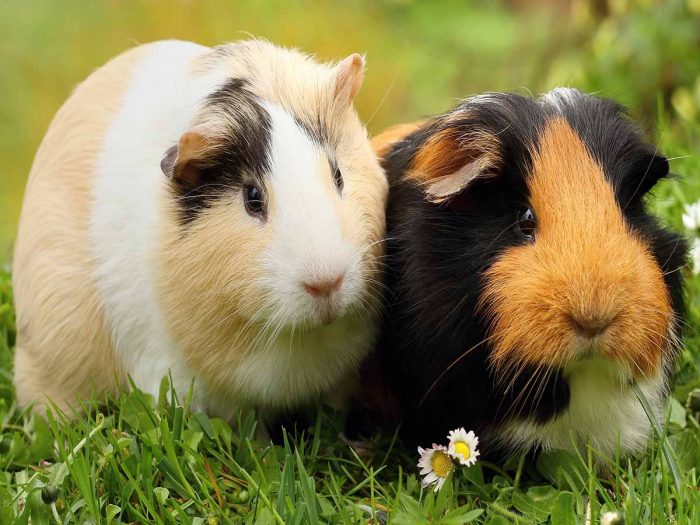For those pet owners with a guinea pig, introducing watermelon to their diet may be an obvious choice but it is important to understand all of the risks before bringing a new food to the table.
Can Guinea Pigs Eat Watermelon?
Most researchers agree that watermelon is a perfectly safe fruit to give to your guinea pig. Since the majority of watermelon is composed of water, this fruit is actually an ideal snack for your guinea pig on a hot summer day. The other nutrients in watermelon are not harmful to your furry little friend, and may actually be beneficial in some ways. Vitamin C, for example, is something that guinea pigs are unable to produce in their own body, but it is found in very high quantities within watermelon. This will work to keep your pet healthy, just like vitamin C does for our own immune system. [1]
That being said, watermelon is not packed with nutrients and vitamins, so watermelon should only be one type of food that you give to your pet. You want to introduce variety to your pet’s diet, provided all of the foods you give it are safe. Watermelon, however, is something that can be given to your guinea pig on a daily basis. Small to moderate amounts are fine, but excessive or constant feeding of watermelon will often result in gastrointestinal distress, including nausea and diarrhea. As with any human food for any pet, moderation is key. [2]

Black and white make the perfect pair. Photo Credit: Shutterstock
Can Guinea Pigs Eat Watermelon Rind?
The watermelon rind is far too dense and thick for guinea pigs to digest, so it should generally be avoided. While small amounts of the pale white flesh or the very inner rind could be okay, it is best to stick with the red part of the fruit, as this will be far easier on your pet’s digestive system.
Can Guinea Pigs Eat Watermelon Seeds?
Before giving your guinea pig a slice of watermelon to munch on, be sure to remove all the seeds. These hard pips present a real choking risk for your tiny pet, particularly the black seeds. Some of the flimsy white seeds can be safe, but to be completely safe, simply purchase a seedless watermelon.
